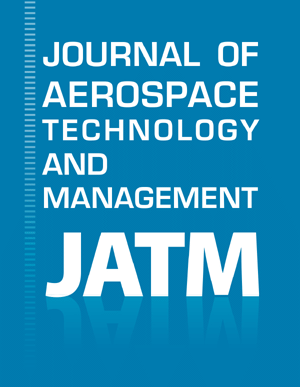ABSTRACT
This research investigated how the variation of temperature and shear rate affects the viscosity of ethanol gel propellants that use methyl cellulose as gellant and, in parts, use boron as energetic additive. Using a rotational viscometer in a cone-and-plate configuration, propellant viscosity data was recorded across a range of temperatures and applied shear rates. The temperaturedependence of the viscosity was modelled using an Arrhenius-type equation. For the high shear rates, the data was modelled using the Power Law, Herrschel–Bulkley model, Carreau model, and Cross model. For low shear rates the used model was the rearranged Herrschel–Bulkley model. The temperature investigation suggested that the trend of decreasing viscosity with increasing temperature, predicted by the Arrhenius-type equation, is only applicable until approximately 320 K, after which the gel viscosity increased strongly. At high shear rates, the gel behaved in a shear thinning manner and was modelled most accurately by the Cross model. At low shear rates, the gel was shear thickening up to its elastic limit, which was found to lie at 0.41 s–1.
Keywords
Gel propellant; Rheology; Shear rate; Temperature; Methyl cellulose

 Thumbnail
Thumbnail
 Thumbnail
Thumbnail
 Thumbnail
Thumbnail
 Thumbnail
Thumbnail
 Thumbnail
Thumbnail
 Thumbnail
Thumbnail
 Thumbnail
Thumbnail






